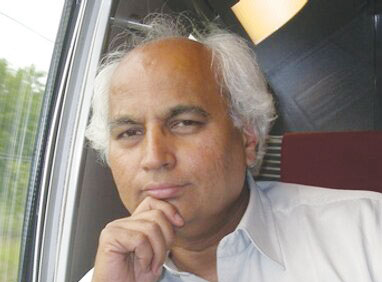 I am writing this essay in Rome and it has aroused indelible memories of a previous visit to this Eternal City six years ago. The rush of memories is stimulated by news that India has begun Mahatma Gandhi’s 150th birth anniversary celebrations. Moreover, EducationWorld is also celebrating its 19th anniversary with this special issue. These anniversaries have prompted me to reminisce about Gandhiji’s encounter with the legendary educator Dr. Maria Montessori (1870-1952) in Rome.
I am writing this essay in Rome and it has aroused indelible memories of a previous visit to this Eternal City six years ago. The rush of memories is stimulated by news that India has begun Mahatma Gandhi’s 150th birth anniversary celebrations. Moreover, EducationWorld is also celebrating its 19th anniversary with this special issue. These anniversaries have prompted me to reminisce about Gandhiji’s encounter with the legendary educator Dr. Maria Montessori (1870-1952) in Rome.
Not many people know that the Mahatma had a deep interest in education reform and had advocated a new pedagogy described as Nayi Talim (new education). He had great respect for Dr. Montessori and her concepts and experiments in early childhood education. Dr. Montessori reciprocated this respect in equal measure.
Dr. Montessori penned a beautiful description of Gandhiji’s visit to Italy. It is contained in an essay by her titled Gandhi and the Child, which was included in a superb commemorative volume Mahatma Gandhi: Essays & Reflections, edited by Dr. S. Radhakrishnan, another great educationist, and published on the occasion of Gandhiji’s 70th birthday in 1939.
In her essay, Dr. Montessori wrote: “…His (Gandhi’s) spirit is like a great energy that has the power of uniting men because it effects some inner sensitivity and draws them together. This mysterious and marvellous energy is called Love. Love is the only force that can bring about a real union between men. Without it, they are drawn into a superficial association by force of external circumstances and the pursuit of material interest. This association without love is insecure and leads to dangers. Men should be united in both ways — by a spiritual force attracting the soul and by material organisation.”
Elaborating, Dr. Montessori added: “I felt this very deeply when Gandhi paid a short visit to Europe some years ago, and stayed a few days in Rome on his homeward voyage. I then felt that there emanated from Gandhi a mysterious power. During a reception in his honour, while he sat on the floor and spun, children sat around him, serene and silent. And all the adults who attended this unforgettable reception were (also) silent and still. It was enough to be together; there was no need of singing, dancing or speeches… We must think about this spiritual attraction; it is the force that can save humanity, for we must learn to feel this attraction to each other, instead of being merely bound by material interests.”
Montessori had met Gandhiji for the first time in October 1931 in London. At her invitation, Gandhiji visited the Montessori Training College, London. In his speech on the occasion, he said: “It was in 1915 when I reached India, that I first became acquainted with your activities. It was in a place called Amreli that I found that there was a little school being conducted after the Montessori system. Your name had preceded that first acquaintance… Since then, I have had the pleasure of coming across several of your pupils, one of whom had even made a pilgrimage to Italy and had received your personal blessing. I was looking forward to meeting the children here and you all, and it is a great pleasure to me to see these children… The greatest lessons in life, if we would but stoop and humble ourselves, we would learn not from grown-up learned men, but from so-called ignorant children. Jesus never uttered a loftier or a grander truth than when he said that wisdom cometh out of the mouths of babes. I believe it; I have noticed it in my own experience that, if we approach babes in humility and innocence, we would learn wisdom from them.”
The full import of what Gandhiji told Dr. Montessori in 1931 and what she wrote about him eight years later can be best understood if we recall the historical context in which these two great souls affirmed their faith in the Power of the Child. The death and devastation caused by the First World War was fresh in the minds of the people of Europe and elsewhere. The foreboding about the worse horrors of the approaching Second World War had spread pessimism and helplessness everywhere. It was in these dark and depressing times that the Mahatma, Dr. Montessori and other great thinkers of the world discovered a ray of hope in children’s education, especially in the saving strength of the pure innocence of children.
The world wars are behind us. But we still face gigantic challenges that have jeopardised human welfare and happ-iness; some challenges even threaten our very survival on this beautiful and supremely generous planet. Our search for peace and human brotherhood continues. But this search will remain fruitless so long as men allow themselves to be “drawn into a superficial association by force of external circumstances and the pursuit of material interest”.
As Dr. Montessori, who spent a lifetime learning from children and devising a system for their education, reminds us: “The art of spiritually approaching the child, from whom we are too far, is a secret that can establish human brotherhood; it is a divine art that will lead to the peace of mankind.”
(Sudheendra Kulkarni was an aide of former prime minister Atal Bihari Vajpayee (1999-2004) and is currently the Mumbai-based founder of the Forum for South Asia)























